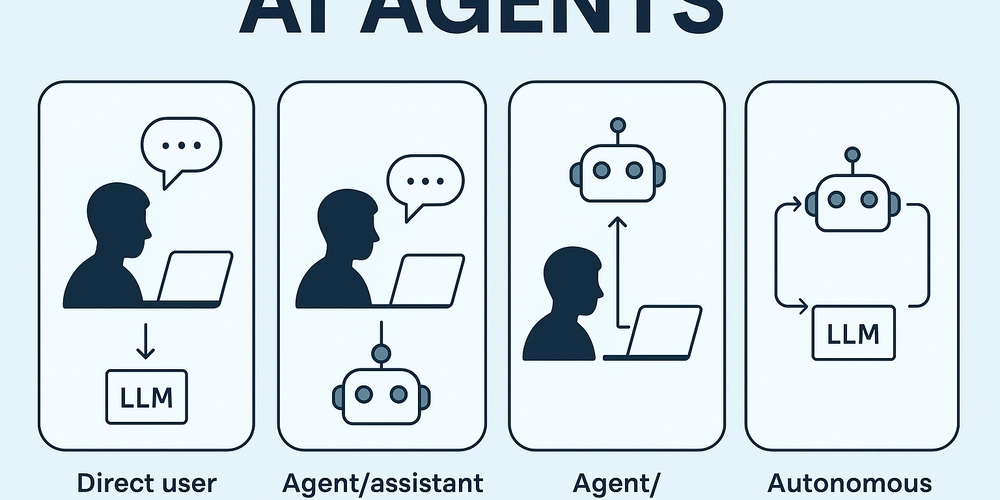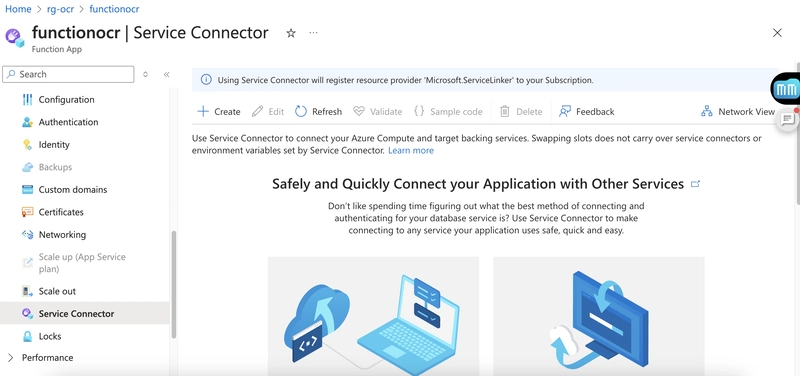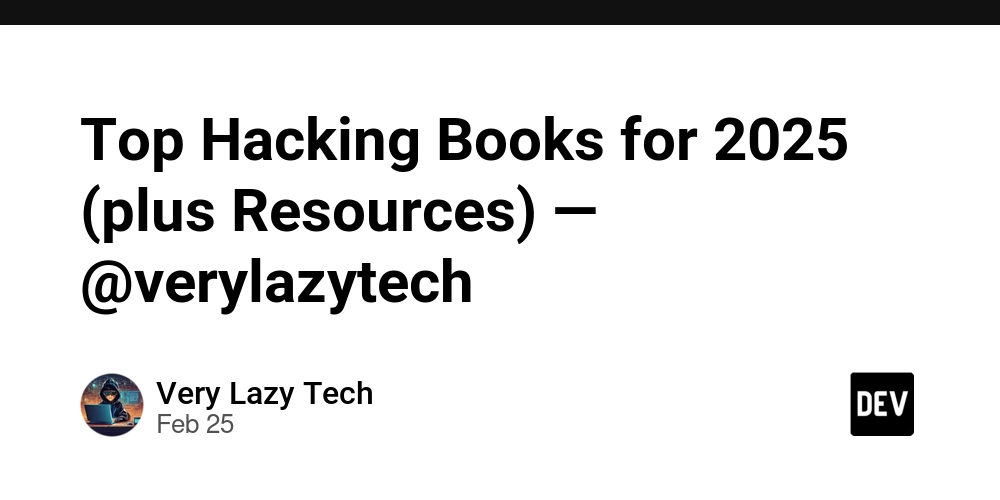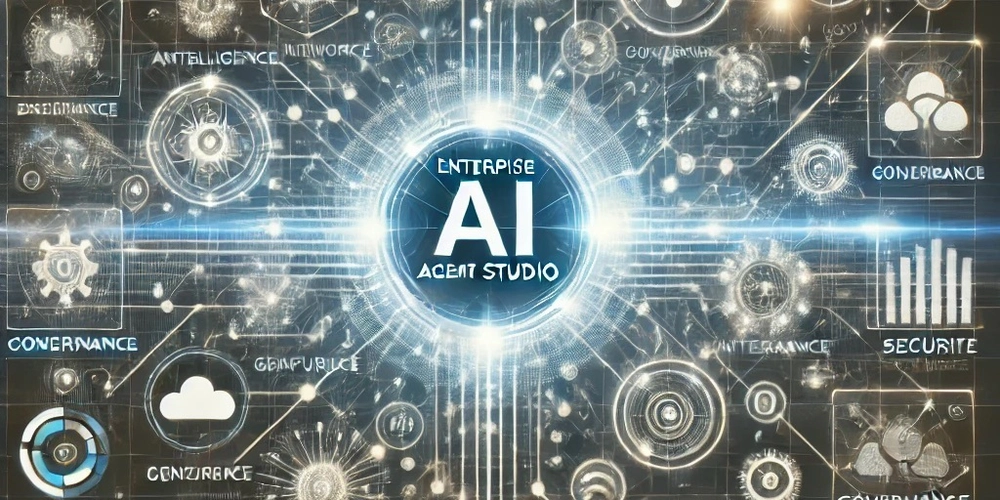The Rise of "Vibe Coders" and the Imperative of Foundational Skills
The software development world is in a state of rapid transformation, fueled by the accelerating pace of artificial intelligence (AI) and the sheer growth of our community. But beneath the surface of new tools and trends lies a crucial dynamic: the rapid expansion of the developer workforce. The 5-Year Growth Cycle Here's a key factor to understand: the number of software developers roughly doubles every five years . This isn't just a fun fact; it's a demographic shift that profoundly impacts the industry. With this rapid growth, the median experience level within the developer community is constantly being adjusted downwards. This means that, increasingly, a larger portion of the workforce will have less experience than the average developer currently have. Rise of the "Vibe Coder" Era This brings us to the rise of the "vibe coder." The term describes developers who heavily rely on AI-powered tools to generate code, often without a deep understanding of the underlying principles . They might prompt an AI with a general idea and accept the output without rigorous analysis or a strong grasp of the code's implications . Is this a problem? Well, it's a consequence of the rapid growth cycle. With more people entering the field quickly, and AI lowering the barrier to entry, we see a natural increase in those who prioritize speed and output over deep understanding. While this approach can accelerate initial development, it raises concerns about code quality, maintainability, and the ability to tackle complex debugging scenarios . The Enduring Importance of the "Foundational Engineer" In contrast, the "foundational engineer" embodies the importance of a solid grounding in computer science fundamentals, programming languages, and software development best practices . These are the developers who possess a deep understanding of how software works, can effectively debug complex issues, and build scalable, maintainable, and secure systems . They view AI as a powerful tool to augment their abilities, not as a shortcut to bypass fundamental knowledge . In an industry where the average experience level is decreasing, these foundational engineers become even more critical. They provide the expertise and stability needed to ensure the quality and reliability of software systems. AI is - A Tool, Not a Panacea AI's impact on software development is undeniable . It offers incredible potential for increased productivity, automating repetitive tasks, and even assisting with initial code generation . However, it's crucial to recognize its limitations. Current AI models can struggle with complex debugging, understanding nuanced requirements, and generating truly innovative and architecturally sound solutions without human guidance . Over-reliance on AI without a solid foundation can lead to code that is buggy, insecure, and difficult to maintain in the long run . Why Foundational Skills Remain Paramount? In this dynamic landscape, the importance of mastering fundamental software development skills cannot be overstated . A strong grasp of programming principles, data structures, algorithms, and system design will be essential for navigating the AI-driven future . This knowledge will empower you to effectively leverage AI tools, critically evaluate the code they generate, and solve the complex problems that truly require human ingenuity . The Future Landscape The rapid growth of the developer workforce, coupled with the rise of AI, presents both opportunities and challenges. New specialized roles, such as prompt engineers, AI integration specialists, and code quality auditors, may emerge . The demand for cybersecurity professionals will likely increase as well, given the potential for vulnerabilities in AI-generated code . Final Thoughts The 5-year growth cycle and the rise of "vibe coders" highlight the need for a balanced approach. Embrace the power of AI, but never stop honing your fundamental skills. Continuous learning and adaptation will be key to thriving in this dynamic and ever-evolving field.

The software development world is in a state of rapid transformation, fueled by the accelerating pace of artificial intelligence (AI) and the sheer growth of our community. But beneath the surface of new tools and trends lies a crucial dynamic: the rapid expansion of the developer workforce.
The 5-Year Growth Cycle
Here's a key factor to understand: the number of software developers roughly doubles every five years . This isn't just a fun fact; it's a demographic shift that profoundly impacts the industry. With this rapid growth, the median experience level within the developer community is constantly being adjusted downwards. This means that, increasingly, a larger portion of the workforce will have less experience than the average developer currently have.
Rise of the "Vibe Coder" Era
This brings us to the rise of the "vibe coder." The term describes developers who heavily rely on AI-powered tools to generate code, often without a deep understanding of the underlying principles . They might prompt an AI with a general idea and accept the output without rigorous analysis or a strong grasp of the code's implications .
Is this a problem? Well, it's a consequence of the rapid growth cycle. With more people entering the field quickly, and AI lowering the barrier to entry, we see a natural increase in those who prioritize speed and output over deep understanding. While this approach can accelerate initial development, it raises concerns about code quality, maintainability, and the ability to tackle complex debugging scenarios .
The Enduring Importance of the "Foundational Engineer"
In contrast, the "foundational engineer" embodies the importance of a solid grounding in computer science fundamentals, programming languages, and software development best practices . These are the developers who possess a deep understanding of how software works, can effectively debug complex issues, and build scalable, maintainable, and secure systems . They view AI as a powerful tool to augment their abilities, not as a shortcut to bypass fundamental knowledge .
In an industry where the average experience level is decreasing, these foundational engineers become even more critical. They provide the expertise and stability needed to ensure the quality and reliability of software systems.
AI is - A Tool, Not a Panacea
AI's impact on software development is undeniable . It offers incredible potential for increased productivity, automating repetitive tasks, and even assisting with initial code generation . However, it's crucial to recognize its limitations. Current AI models can struggle with complex debugging, understanding nuanced requirements, and generating truly innovative and architecturally sound solutions without human guidance . Over-reliance on AI without a solid foundation can lead to code that is buggy, insecure, and difficult to maintain in the long run .
Why Foundational Skills Remain Paramount?
In this dynamic landscape, the importance of mastering fundamental software development skills cannot be overstated . A strong grasp of programming principles, data structures, algorithms, and system design will be essential for navigating the AI-driven future . This knowledge will empower you to effectively leverage AI tools, critically evaluate the code they generate, and solve the complex problems that truly require human ingenuity .
The Future Landscape
The rapid growth of the developer workforce, coupled with the rise of AI, presents both opportunities and challenges. New specialized roles, such as prompt engineers, AI integration specialists, and code quality auditors, may emerge . The demand for cybersecurity professionals will likely increase as well, given the potential for vulnerabilities in AI-generated code .
Final Thoughts
The 5-year growth cycle and the rise of "vibe coders" highlight the need for a balanced approach. Embrace the power of AI, but never stop honing your fundamental skills. Continuous learning and adaptation will be key to thriving in this dynamic and ever-evolving field.










































































































































































![[The AI Show Episode 142]: ChatGPT’s New Image Generator, Studio Ghibli Craze and Backlash, Gemini 2.5, OpenAI Academy, 4o Updates, Vibe Marketing & xAI Acquires X](https://www.marketingaiinstitute.com/hubfs/ep%20142%20cover.png)



























































































































![[FREE EBOOKS] The Kubernetes Bible, The Ultimate Linux Shell Scripting Guide & Four More Best Selling Titles](https://www.javacodegeeks.com/wp-content/uploads/2012/12/jcg-logo.jpg)



![From drop-out to software architect with Jason Lengstorf [Podcast #167]](https://cdn.hashnode.com/res/hashnode/image/upload/v1743796461357/f3d19cd7-e6f5-4d7c-8bfc-eb974bc8da68.png?#)






































































































.png?#)




.jpg?#)
































_Christophe_Coat_Alamy.jpg?#)







































































































![Rapidus in Talks With Apple as It Accelerates Toward 2nm Chip Production [Report]](https://www.iclarified.com/images/news/96937/96937/96937-640.jpg)









































































































































